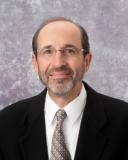
McGowan Institute for Regenerative Medicine affiliated faculty member David Schwartzman, MD, is a Professor of Medicine at the University of Pittsburgh School of Medicine and a member of the UPMC Cardiovascular Institute and the UPMC Center for Atrial Fibrillation. He specializes in the evaluation and management of disorders of heart rhythm. Among the diseases he treats is atrial fibrillation, which is potentially dangerous. The occurrence of atrial fibrillation is often caused by poor lifestyle choices, and for maximal benefit, its treatment must include lifestyle optimization.
Dr. Schwartzman recently authored a Perspectives piece for the Pittsburgh Tribune-Review. In his article, he stressed:
It is increasingly clear that our “lifestyle” — behaviors regarding food, physical activity, sleep, and peace of mind — exerts a powerful influence on the likelihood of chronic disease and the rate of progression to frailty.
Food is paramount, and today’s eating and drinking habits are driving an epidemic of overweight, which facilitates chronic disease. In my opinion, present evidence points to a whole food, plant-based diet comprised of unadulterated fruits, vegetables, tubers, legumes, whole grains, nuts, and seeds as most effective in warding off chronic disease while promoting a healthy body weight. Also crucial is a personal culture of physical activity, to include regular exercise as well as standing in lieu of sitting and walking in lieu of riding. Adequate and restful sleep is essential for health, given its role in bodily repair and replenishment. Peace of mind may be the greatest lifestyle challenge, given its multi-faceted nature which is unique to each person, and ways to achieve it may include addressing problems at work or with relationships, pursuing causes, or experimenting with faith, hobbies, behavioral counseling, medications, meditation, and yoga, among others.
He continues:
In my experience, few physicians adequately inform their affected patients of the imperative for lifestyle optimization as the bedrock of any chronic disease management strategy. Most have never received training in lifestyle medicine, and remain unaware or unconvinced as to its feasibility, efficacy or sustainability. Even among believers, time, resources and incentives are inadequate in current practice settings to teach these skills to patients, and to facilitate long-term adherence. The infrastructure required to do this well is substantial, and largely unsupported by payors. Neither are patients at present adequately incentivized to defend themselves, an onerous fact in our current culture which strongly promotes chronic diseases.
Dr. Schwartzman’s underlying message is that doctors must help patients change lifestyles to beat disease by endeavoring to integrate lifestyle optimization into chronic disease care.
Illustration: UPMC.
Read more…
